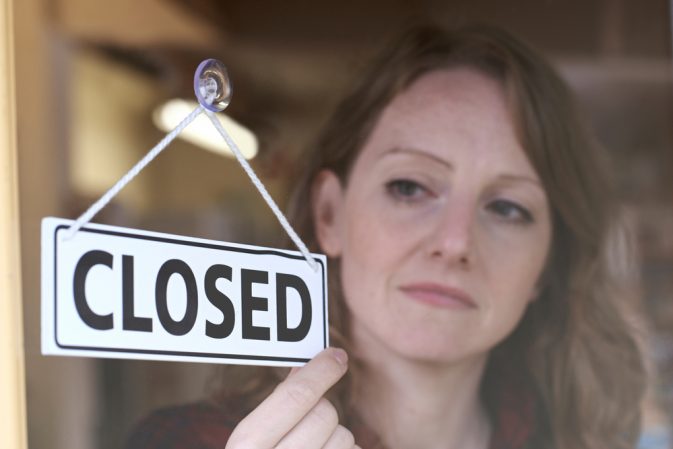It’s Defcon 1 for America’s small businesses, this is what has to happen next

For the country’s small business job creators, spring can’t come soon enough. With two vaccines that are about 95 percent effective poised to plunge into American arms in a matter of weeks, the end of this pandemic nightmare is finally on the horizon. Yet small businesses still have to get from here to there. Another brutal wave of infections and associated economic shutdowns threaten to put beleaguered employers out of business for good.
It’s Defcon 1 for small businesses. Experts assume that the country will achieve vaccine-induced herd immunity by May, so call the effort to keep small businesses alive until then “Operation Mayday.” The best way to help small businesses bridge the gap from today till May is by extending the Paycheck Protection Program, which offers small companies forgivable loans if they maintain their payroll.
Obstructionist Democrats in the House of Representatives have held additional PPP funds hostage in return for a multi-trillion-dollar blue state bailout that would amount to a debt jubilee for badly governed states and localities.
Yet the December 11th government funding deadline offers Congress the opportunity and impetus to finally come together in bipartisan compromise to save small businesses. The PPP is one of the most successful government programs in U.S. history. So far this year, the program distributed roughly five million forgivable loans worth over $500 billion, saving more than 50 million jobs.
The PPP protected the jobs of as much as 84% of the nation’s small business workforce. Extending it will ensure that small businesses are poised to return the country to rapid economic growth and full employment when herd immunity is reached.
Small business owners need this lifeline immediately. They’ve already endured one painful shutdown, and many are now entering another. Some Main Street employers have forked out tens of thousands of dollars to retrofit their establishments to comply with Covid restrictions, protect their customers, and expand outdoor operations — only to have to shut down again.
According to Yelp, nearly 100,000 small businesses have permanently gone out of business since the pandemic began, with employers of color disproportionately impacted. Transaction activity suggests that one in five companies that were open in January have closed. According to the Opportunity Insights Economic Tracker at Harvard University, total small business revenue in November is about one-third less than it was in January. A Goldman Sachs survey of small businesses finds that four in 10 respondents have laid off employees or cut pay. Another four in ten said they’ll have to take these steps if additional government funds aren’t forthcoming. When you consider that the median business with more than $10,000 in monthly expenses has only about two weeks’ worth of cash on hand, these responses are no surprise. This week, Senator Majority Leader Mitch McConnell circulated legislation that includes more than $330 billion in additional PPP funds, with a special emphasis on “front-line” consumer-facing sectors such as restaurants and personal services. These funds can help employers survive until May.
Democrats should stop treating small businesses as a bargaining chip and support this commonsense solution. Opposing it would not only deny small businesses the lifeline they need but also may cause a government shutdown.
Small businesses are not asking for a bailout. They are doing their civic duty by reducing consumer traffic and temporarily closing to keep their communities safe and provide much-needed job opportunities.
The least the government can do is offer them a lifeline for a few more months. Such support now will pay fiscal and economic dividends later as small businesses — and a vaccinated nation — come roaring back in 2021.
Armed with a PPP extension, American entrepreneurs’ hope springs eternal.
Alfredo Ortiz is the President and CEO of the Job Creators Network.





